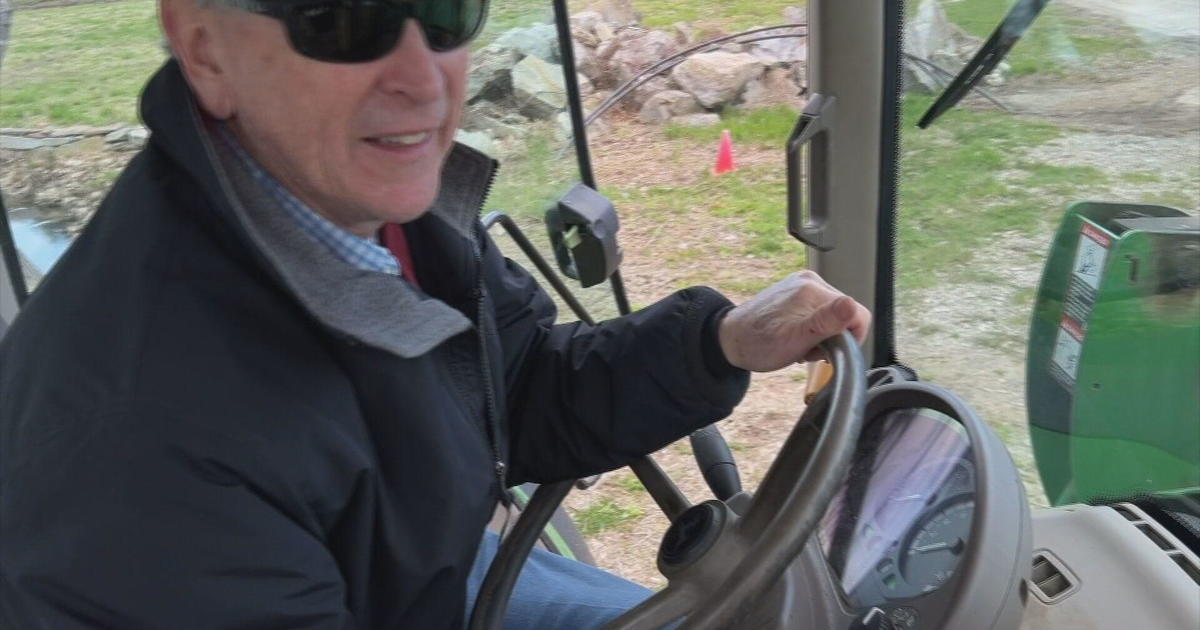Woods Hole Farm Focuses On Fiery Peppers
FALMOUTH, Mass. (AP) — Just their menacing names alone may be enough to get some folks all hot and bothered: the devil's tongue, the ghost pepper and the Trinidad Moruga scorpion.
Try taking a raw bite into one of these bad boys and that would lead to some serious tastebud trauma. Especially the Trinidad Moruga scorpion, which is the world's hottest chili pepper and one of Rooster Fricke's favorite crops.
"If you ate one of these — whether it is fresh or dried — you would be in extreme discomfort and you'll wish you hadn't done it for a long time," he said.
Fricke owns and tends what is likely the Cape's spiciest farm.
More than 20 varieties of some of the most sweat-generating, tear-inducing chili peppers on the planet (and the not as hot ones, too) are grown here at Nobska Farms in Woods Hole.
The Moruga scorpion sets mouths on fire and has registered 2 million units on the Scoville scale, which measures the hotness of peppers. For comparison, the more palatable yet still spicy and popular jalapeno tops about 6,000 Scoville units, Fricke said.
Though most people can't consume these super hots without steam coming out of their ears, the peppers produce all kinds of different flavors that many spicy foodies adore. "These Trinidad Moruga scorpions are actually very fruity flavored. Others in the patch have a more citrusy flavor, and some have a more smoky flavor,"
Fricke infuses his peppers into all kinds of products for sale at the farm, from jams and literally hot chocolates to his signature sauce called "Rooster's Rocket Fuel." Restaurants and chefs seeking specialty chiles they can't get at the typical grocery store are some of the farm's main customers.
And the wicked hot wares from Nobska Farms have been helping set the bar scene on fire this year in the hip Brooklyn, N.Y., neighborhood of Williamsburg. There, Chaim Dauermann, the beverage director for the restaurant Desnuda Cevicheria, has created two high-end cocktails using Nobska Farms peppers.
He combined Rooster's Moruga scorpion and pasilla chiles into a syrup and mixed it with other spirits and ingredients to come up with "The Reformer" ($14), a cocktail he said has the heat of a spicy salsa.
"Rooster's peppers are enabling me to do things a lot of others aren't able to do," Dauermann said in a phone interview. "It's definitely a trend right now. People want spicy drinks. I'm seeing a lot of places incorporating chiles into their drinks more creatively than they had years ago."
So what makes folks want to take the potentially painful plunge into pepper-based food and drink? Fricke said some are addicted to the buzz.
"The active ingredient capsaicin stimulates your brain to think that you're actually physically burned, but you're not," Fricke said. "It dumps endorphins into your body to help your body deal with that burn and that endorphin causes a rush; it gives you somewhat of a high."
Fricke's near-future farming plans include implementing sustainable agriculture practices like aquaponics for his chili pepper and other gardening operations. He's always thinking about new ways to introduce his super-hot peppers to a broader audience.
"I like the challenge of how to make it accessible to people who like the flavor but only enjoy a little heat," Fricke said.
Copyright 2013 The Associated Press.



